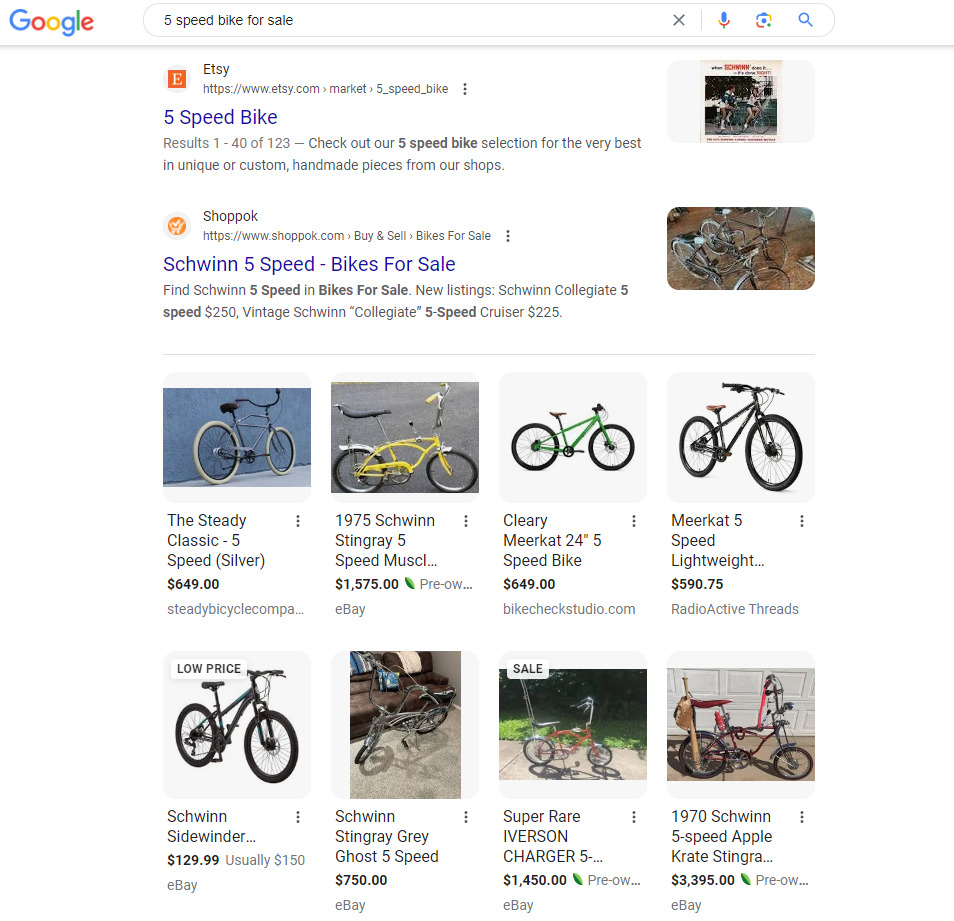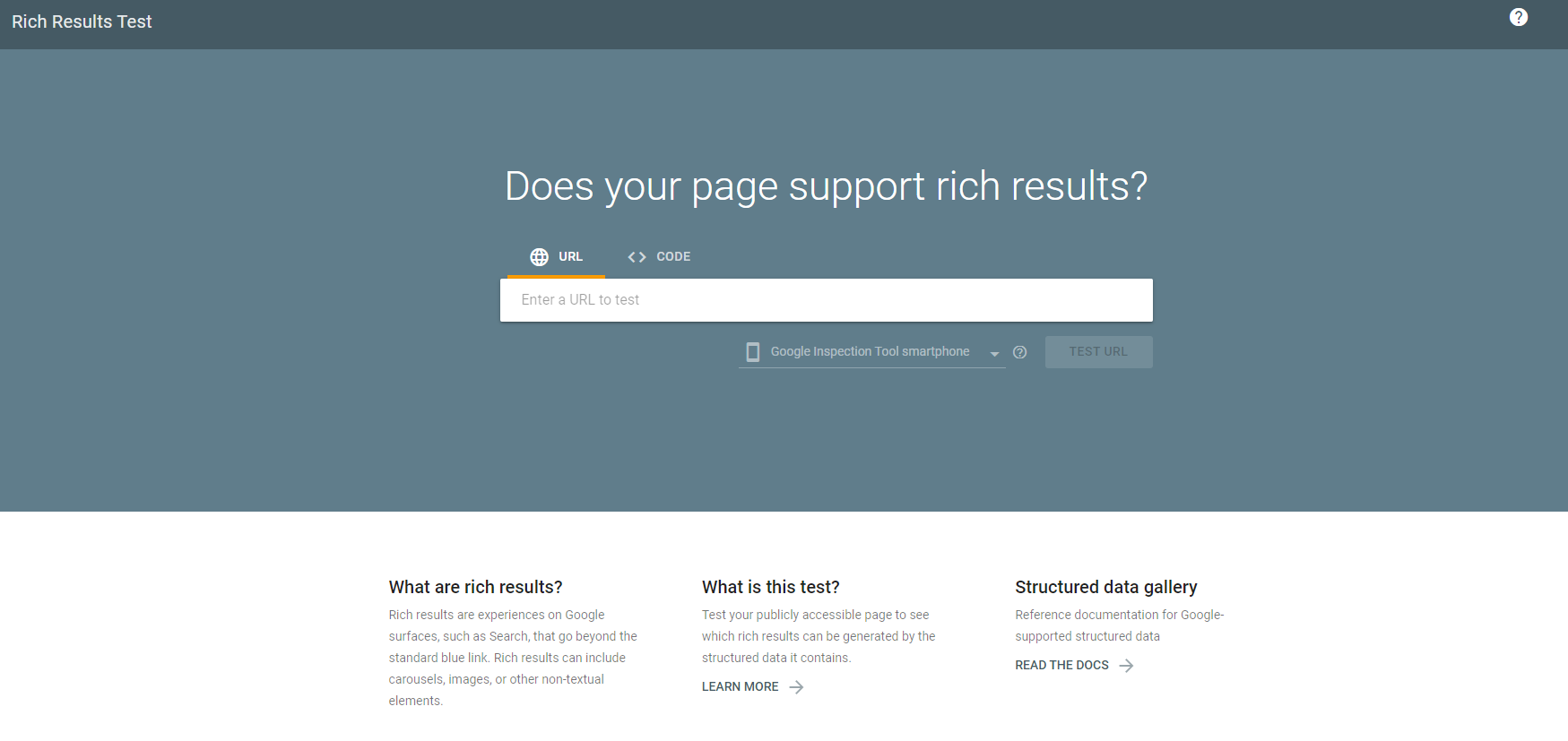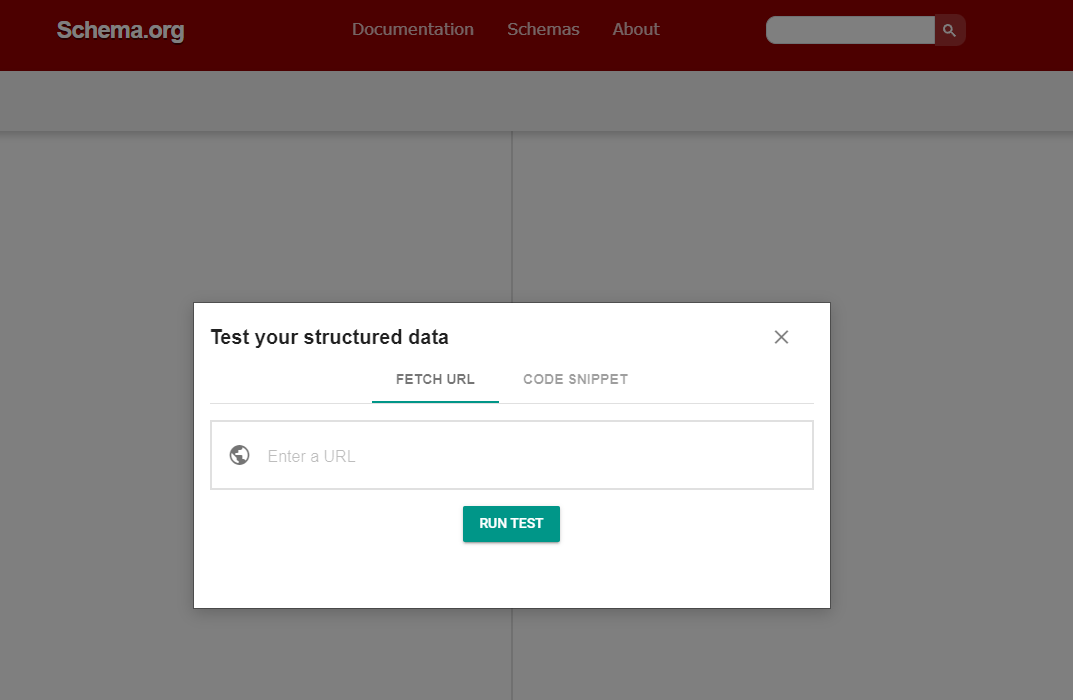Getting your content on the first page of a search results page can mean a lot of different things. For a local business, appearing in the map pack of local results is a big accomplishment. For a store that sells products, getting your products highlighted in the shopping results are huge. And for content creators, getting your video to appear in the perspectives results should be a top goal.
In addition to those types of results, general web results have many “rich results” that your content can appear as. These rich results take the content that you present to a search engine and renders them on a search results page in unique and captivating ways. Here are some examples of rich results:


While Google and Bing have the ability to determine on their own what content can appear in those results, wouldn’t you really want to tell them the content you want to feature and how you want it to appear? The good news is you can!
This is largely done through schema markups.
What Are Schema Markups?
A schema markup is a type of code that you can add to your website to help search engines understand your content better. It is a way of marking up, or highlighting, your content so that search engines can understand the meaning of the text, images, and other elements that appear on your pages. This can help your pages rank higher in search results and can also make your listings more attractive to users. After all, appearing high on the page isn’t really worth it if your site isn’t user-friendly or appealing.
There are many different types of schema markups, depending on the type of content on your website. Some examples of markups you can use are those for marking up products, recipes, events, and more. Schema markups are important because that are great ways to improve the visibility of your website and existing content in search results. Additionally, they are relatively easy to add and can be a valuable tool for any website owner.
Once you have your content ready and your markups coded though, how do you know everything is as you want it? That takes us to the point of our article – the schema markup checkers and validators.
The first we will talk about is Google’s Rich Results Test tool.
What is the Google Rich Results Test Tool?
Once you have added schema markup to your pages, you can test it using Google’s Rich Results Test tool.

Originally called “rich snippets”, all rich results that you have marked up on your page can be tested with this simple tool. According to Google, this “testing tool focuses on the structured data types that are eligible to be shown as rich results. It allows you to test all data sources on your pages, such as JSON-LD (which we recommend), Microdata, or RDFa.”
And while the tool may be simple to use, it is an incredibly important one. Here are 3 reasons why:
- It helps you know exactly how Google sees your content
- Sometimes you have a page that has some frequently asked questions on part of it, and other parts have some how-to’s and learning videos. With the rich results tool, you’ll get the most out of your content and get to tell Google exactly how you want it displayed.
- You can double-check your work before indexing
- There is nothing worse than waiting for Google’s archaic indexation protocol to finally index your page, just for it to not display what you want correctly. Rather than going through that excruciating process, you can check your work before you kick off the index request.
- Rich results can be critical for AI conversational results
- As Google and Bing integrate AI into their search experiences, look for them to play around with rich results as well as basic hyperlinks for citations. Getting your site or brand in the chat results and the traditional search results could be a huge win.
We have covered the basics of the Google Rich Results Test tool and seen how valuable and important it should be for any SEO tech. But equally important, if not more important, is the next tool we will talk about; the Schema.org Trusted Data Validator.
What is the Schema.org Trusted Data Validator?
Schemas are a set of ‘types’, that each have associated sets of properties. Currently, there are 797 unique types of schemas, and while Google does not make use of all of them, there are a large number that are available for you to make use of. From Q&As, events, recipes and voice “speakables”, there are many ways to format your content to try to get a rich result.
As for the Schema.org tool itself, like Google’s rich results tool it has two handy ways to help you check your schema formatting: URLs and raw code.

You can toss any published URL into the field and get a nice formatting check of any existing page. As you can imagine, this is extremely helpful for checking old pages or auditing a new page.
With the code snippet option, you can enter your code before you commit it and see if everything looks good or if there are some rogue terminators or characters in there to address.
Similar to the Google Rich Results Test tool, the Schema.org Trusted Data Validator can be a huge help when you are working on a new page or auditing a site for a client. While the tool is simple and intuitive, it is invaluable with working with schemas and scripts.
If you are looking for ways to improve the visibility of your website in search results, schema markups are a great option. They can also make your listings more informative and engaging, which can lead to a better user experience.
Did You Enjoy Our SEO Tools Series?
Amazingly, this is the last part of our five-part series on the best SEO tools we use at comebefound. Hopefully, you saw some you prefer and maybe some you did not know about! Of course, feel free to ask us about any of these tools if you have any questions about them or how we use them to help our clients grow their organic search traffic.

